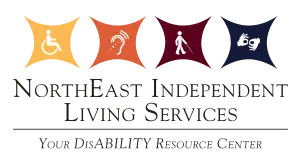
As we help to care for our elderly it can be a stressful process. Worrying and wondering – what is normal behavior for a senior of their age? What is dangerous and should be addressed? In this blog, we will cover what to look for and what needs to be discussed with their doctor. Seniors may know they are not remembering things the way they used to, not recognizing familiar people right away – but could also be in denial about it or just chalk it up to old age. As family and friends of someone who is aging, we have to know the signs.
Dementia is not a specific disease but is an impairment in the functions that affects daily life. There is no such thing as a blood test for dementia – you have to watch for the signs and if two or more are present, it’s time to talk to the doctor about it. It’s important to know that dementia can’t be cured, but it can be managed at home as long as possible with the help of a doctor, a home health care worker, and lots of love.
Signs of dementia:
- Short-term memory loss. With this symptom, the elderly can remember an event from 50 years ago like it was yesterday, but forget what they had for breakfast. They will misplace things, forget what they were talking about, set out to complete a task, and forget that task on the way. This can be a sneaky symptom because we all forget things, but if you notice that this forgetfulness is impairing their day-to-day life, it could be a sign.
- Struggles with communication. With this symptom the elderly struggle to find the words they need to express what they are trying to say. They can forget what things are called, the names of places, the list goes on.
- Disinterest. This is when the elderly seem to give up on finding enjoyment and happiness in life. They don’t do their hobbies anymore, don’t socialize, or find fun in anything. They seem to have retreated into themselves.
- Repeating themselves. They tell the same story over and over. They ask the same question multiple times. They get stuck in a loop of thought.
- Spatial awareness. Dementia can cause someone to lose their awareness of what is around them. A carpet on the floor that is a trip hazard. Tipping over glasses and dropping utensils. Not remembering where the door is in a new place. They seem to only be aware of what is right in front of their nose and nothing else.
- Being unable to complete new or complex tasks. You will notice they avoid situations in which they may need to remember steps to complete a task, they are unable to learn new games or complete complex tasks they used to be able to do.
- Declining mental health. As the world seems to be narrowing down to a pinpoint, it can cause anxiety, depression, and mood swings. This isn’t surprising, considering the symptoms listed above, but treatment options are available.
It is not easy growing older and losing your independence and what seems to be your value and purpose in life. It’s not easy watching an elderly loved one become more and more childlike. The roles reverse if you are dealing with a parent or grandparent and it’s tough to start being the one who makes decisions in the best interest of their health and well-being. It was always them taking care of you – and knowing when to step in and become the decision-maker for someone who was always strong and capable and was your caregiver can be so hard to figure out. If you see two or more of the signs above, take them to the doctor. Go with them. Explain your concerns and let them decide what is going on. There may be a vitamin deficiency, a head injury or a number of other causes of these issues that can be resolved, but if it is dementia, you will need a plan to care for them. If home care is still an option, give NEILS a call. We can help and want to make it as easy as possible for everyone involved.
